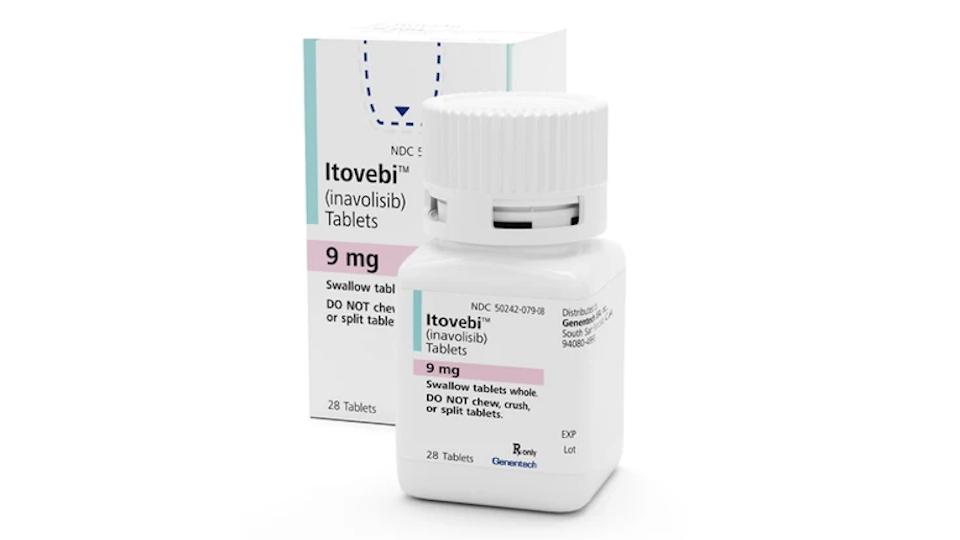ASCO 25: Roche places Itovebi marker in breast cancer

Roche's Itovebi was the first PI3K inhibitor to get approved as a first-line treatment for breast cancer last year – and new survival data to be presented at the upcoming ASCO congress looks set to consolidate its position.
Itovebi (inavolisib) has an FDA green light as part of a combination regimen for patients with advanced HR-positive, HER2-negative breast cancer with a PIK3CA mutation, moving it up the treatment pathway ahead of Novartis' rival PIK3 inhibitor Piqray/Vijoice (alpelisib) which has been cleared since 2019 as a second-line therapy and is not being developed as a first-line option.
Now, Roche looks like it will be able to call on new overall survival (OS) data from the phase 3 INAVO120 study as it jostles for market share with Piqray, according to data released as part of the ASCO abstract drop. Progression-free survival (PFS) data from that study was behind Itovebi's FDA approval last October.
In the study – which compared Itovebi and Pfizer's CDK4/6 inhibitor Ibrance (palbociclib) and anti-oestrogen drug fulvestrant to Ibrance and fulvestrant alone – the triple regimen reduced the risk of death by 33%, with a median OS of 34 months compared to 27 months in the control group.
That adds to earlier data, which showed that the addition of Itovebi more than doubled PFS to 15 months (now updated to 17 months in the latest update) compared to around seven months with Ibrance and fulvestrant alone. It also represents the first time that a PIK3 inhibitor has been shown to extend survival in a phase 3 trial, according to lead investigator Dr Nicholas Turner of the Royal Marsden Hospital in London, UK.
The data also found that Itovebi-treated patients were able to delay the next stage of treatment – chemotherapy – by around two years, while the safety profile was manageable with a low discontinuation rate (less than 7%) due to adverse effects.
PIK3CA mutations are found in approximately 40% of HR-positive breast cancers and are linked to faster tumour growth, disease progression, and treatment resistance. That makes the potential patient population addressed by Itovebi fairly large, and that is behind the drugmaker's predictions that sales could eventually reach upwards of $2 billion a year.
To help it reach that goal, Roche is running additional studies in PIK3CA-mutated breast cancer, including a comparative study with Piqray in the second-line setting (INAVO121), a maintenance study in HER2-positive breast cancer (INAVO122), and a first-line study in patients with hormone-sensitive tumours.
"This study illustrates the importance of genomic testing at the time of diagnosis of hormone receptor-positive metastatic breast cancer, so that patients with PIK3CA mutations who qualify for this approach can be readily identified," said Jane Lowe Meisel of Emory University School of Medicine, one of ASCO's commentators on breast cancer.


